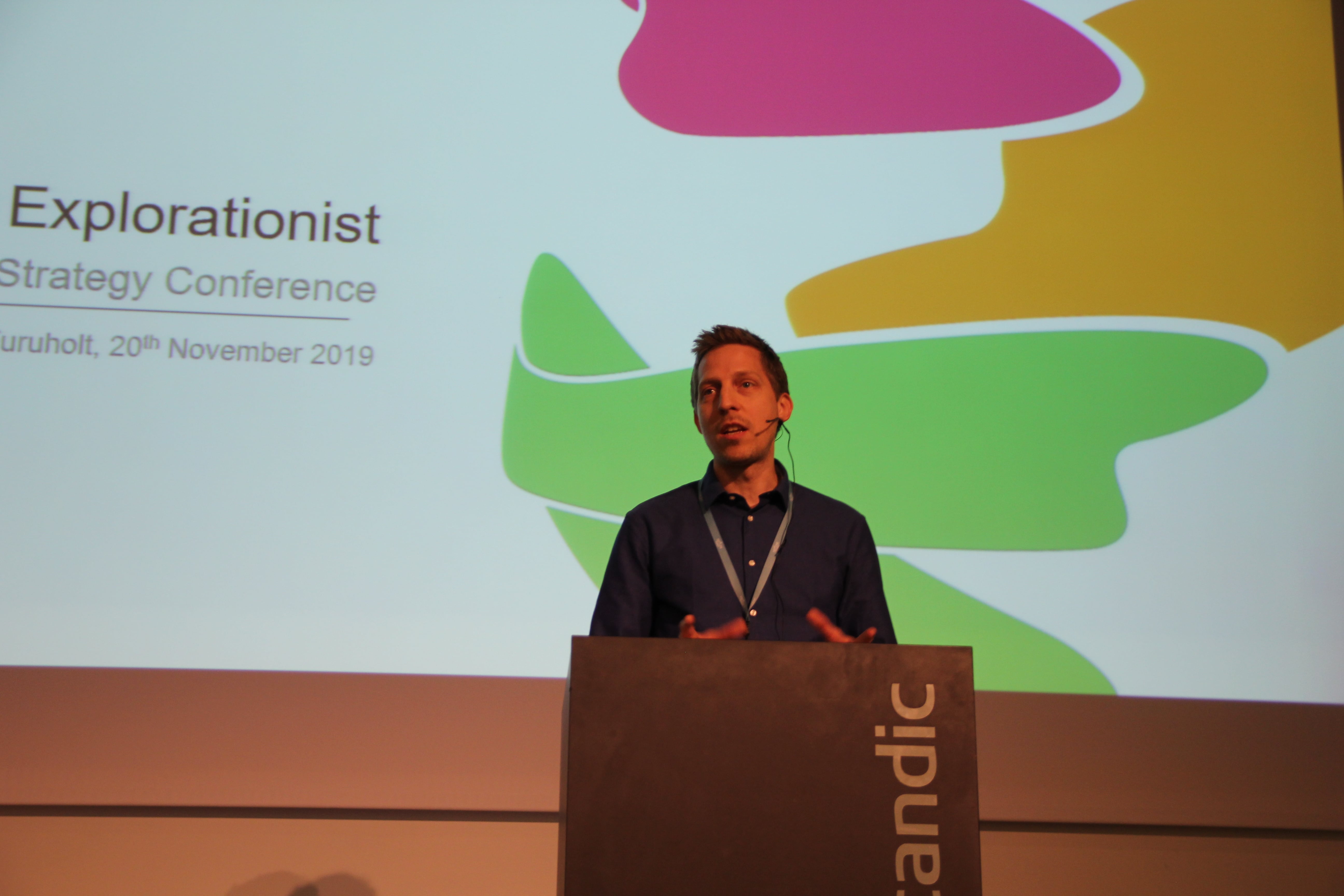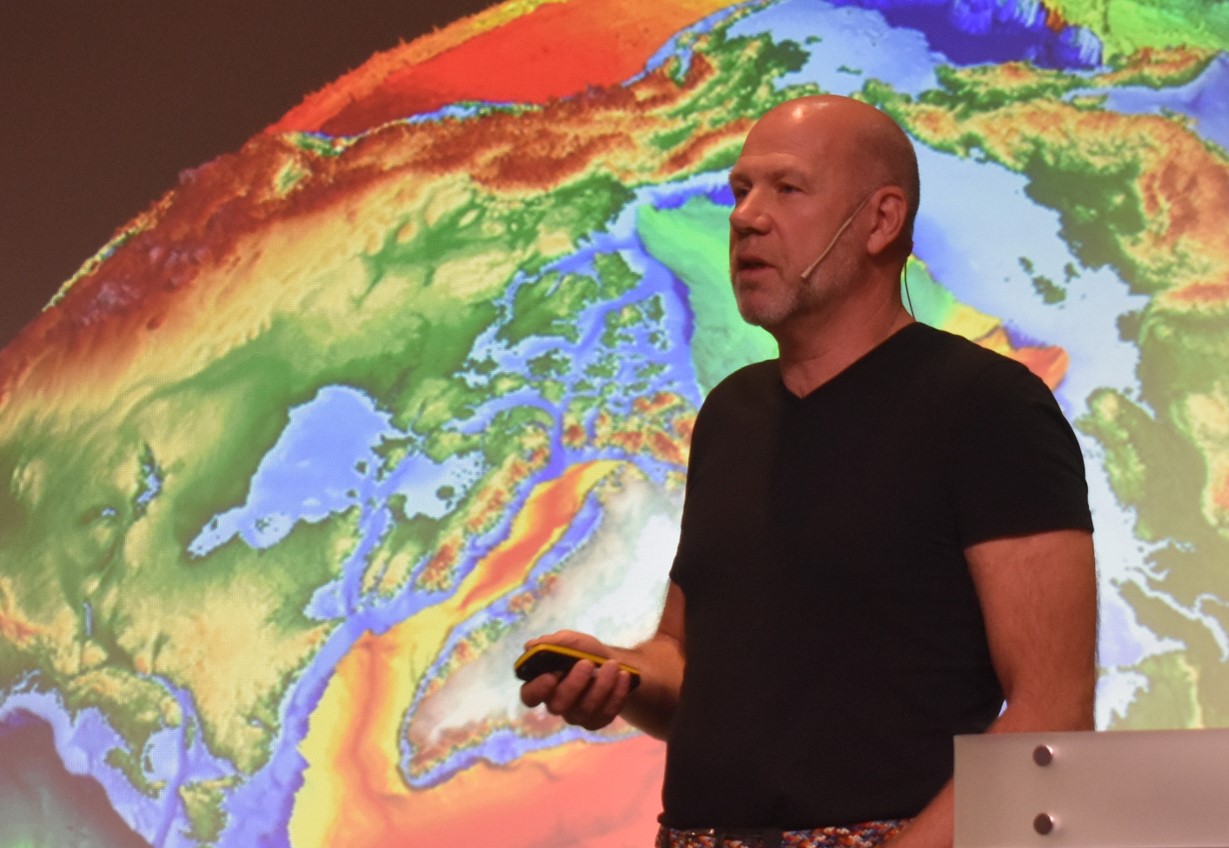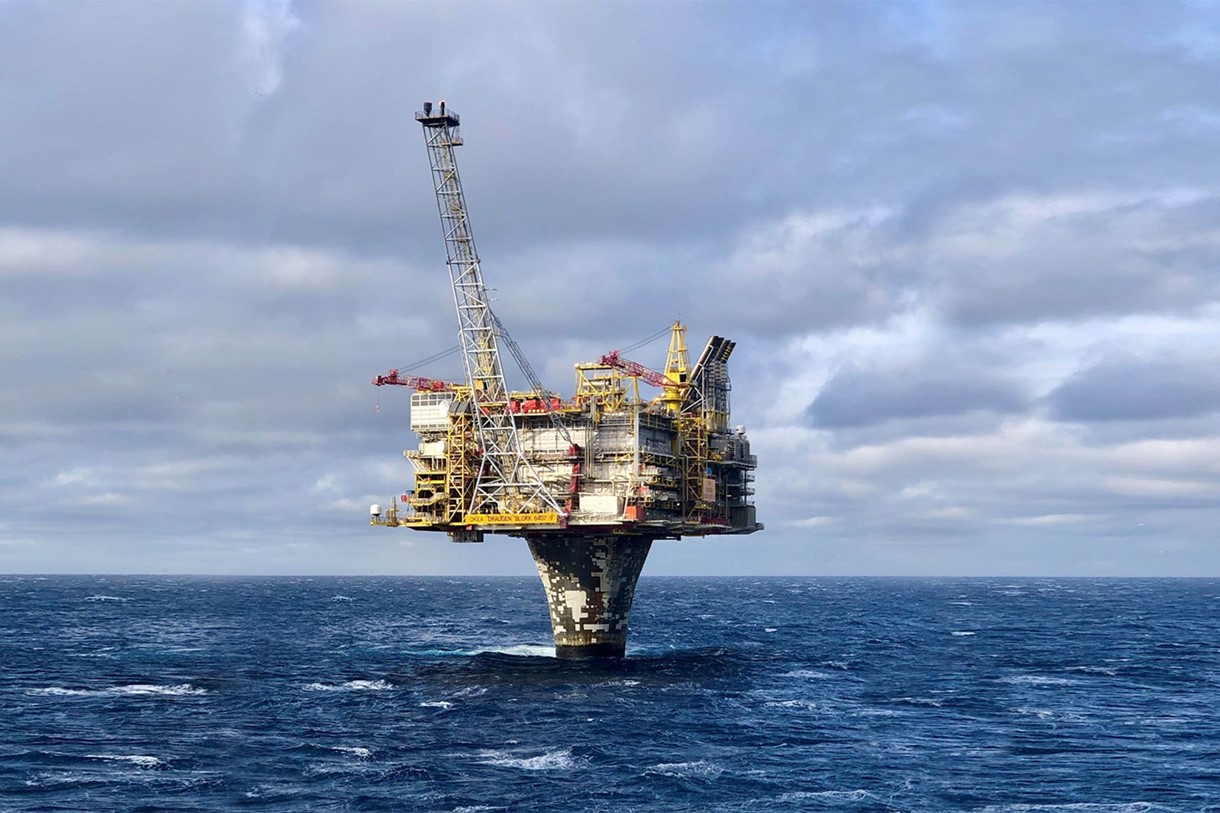Digitalization has become an integral part of the vocabulary in the petroleum industry. But there is still uncertainty surrounding what its role and outcome will be. For instance, can a machine potentially take over the job of the explorationist?
– It is more likely that artificial intelligence (AI) and machine learning (ML) will function as a support for geoscientists working in the E&P industry in the near future. To some degree, this is already happening, said Vidar Furuholt, VP Performance & Digitalization at Aker BP.
Furuholt spoke at the NCS Exploration Strategy 2019 conference in Stavanger on November 20th.
During his presentation named The augmented geoscientist, Furuholt made the case for machines to assist humans, not replace them.
– Imagine, for example, a search engine where you can «google» your question on well data parameters and the machine will provide you with the answers you need.
In Aker BP, as well as other oil companies operating on the Norwegian Continental Shelf, AI and ML are being implemented as we speak. Keywords are cloud computing, analytical tools and applications that collect, sort and analyze large amounts of data and intelligently provide the desired output.
Furuholt offered an example from another industry to explain why a machine couldn’t and shouldn’t replace humans.
– Autonomous (self-driven) cars are something we might see in the future. However, trials have so far not worked out as planned with many crashes and accidents. A better solution could be that machines can help to make humans better drivers by providing them with the information they need as well as assistance. And this is what we might wish for in our industry as well.
Conference on subsurface digitalization
Furuholt will moderate a panel debate (“Platforms – How to avoid lock-in”) January 28th at the DigEx 2020 conference in Oslo.
The goal of digitalization is, at least at the offices of Aker BP, to make sure that the geoscientists can spend their time on the relevant and «fun» parts of the work and less time on digging around for data and transferring data from one platform to another. The latter is exactly what machines are getting increasingly good at.
The result of a successful digitalization could, according to Furuholt, be increased value creation, reduced risk, reduced turnaround time and the enabling of data-driven – and therefore better – decisions.
Furuholt also made a point on collaboration with regards to how machine learning and AI algorithms learn and function. To learn and become «experts» in their field, they require vast amounts of data. The more data they get, the better decisions they are potentially able to make.
– The oil companies on the Norwegian Continental Shelf are competing against each other, also in the area of digitalization. But the truth is, the optimal outcome can only be achieved if all companies collaborate and pool our data together. No individual company can achieve better machine learning results if they only use their own limited data sets.





